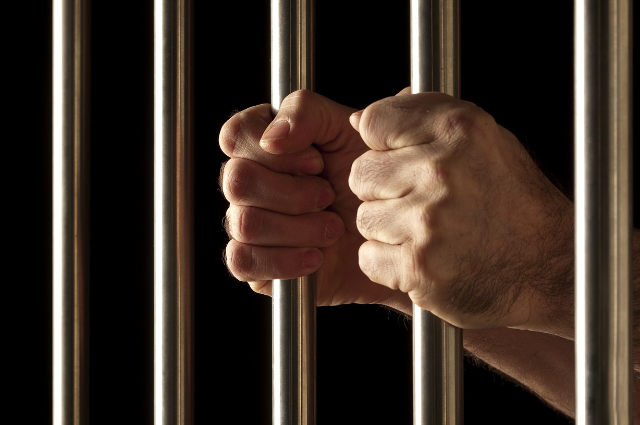
There are nights when I lie awake thinking about what it means to be accused but not convicted. What it means when the State says: “We’re protecting society,” while quietly keeping someone’s liberty locked away. Because for as long as I’ve studied law, I’ve known this one phrase: “bail is the rule, jail the exception.” And yet, as a law student watching cases, reports, and arrests pile up, I wonder: has that rule become a memory?
The principle has deep roots. Under the Constitution of India, Articles 21 and 22 guarantee life and personal liberty and set out the safeguards for arrest and detention. According to scholars and courts, the basic rule of criminal justice is that an accused should normally be granted bail unless there are compelling reasons not to—such as risk of flight, witness intimidation, or tampering with evidence. Realistically, bail is less about freedom and more about restraint—and about the fact that detention before trial is not supposed to feel like punishment. But still, it slips into punishment.
I remember walking past the city lock-up on my way home one evening. I saw the lights on in the cell block, heard a guard’s voice echo down the corridor. It struck me that someone might be behind bars right now for an accusation, still waiting to prove innocence. Waiting. That waiting is the cruelty. Because legal history reminds us: in the landmark case of State of Rajasthan v. Balchand (1977), the Supreme Court asserted clearly:
“The basic rule may perhaps be tersely put as bail, not jail, except where there are circumstances suggestive of fleeing from justice …”
Yet today, I worry that “except” has swallowed the rule.
In many special laws, the exception has become the default. For example, under the Prevention of Money‑Laundering Act (PMLA) and the Unlawful Activities (Prevention) Act (UAPA), courts have flagged that even here, despite stricter conditions, the principle holds: liberty remains the rule. In a recent judgment, the Supreme Court reaffirmed this, saying the twin conditions in PMLA do not permit treating liberty as the exception. But on the ground, too many accused linger in custody because of procedural delay, because trials stall, because states assume detention is safer than release.
Why does this matter? Because liberty is the human condition. The moment you reverse presumption of innocence—because you’re under trial, because you’re poor, because you cannot furnish surety—you flip from defendant to detainee before guilt is even established. You lose your job, your home, your reputation. The man I met at the lock-up? He handed over his phone when I asked—said “I’ve been here 8 months, no trial date.” He didn’t know the law meant to protect him. I did, and yet I felt powerless.
Courts still repeat the doctrine in their judgments. A 2024 High Court decision held that “bail is the rule and jail the exception” is intrinsically linked to Article 21. And yet, detention rates for under-trials hover persistently high (many reports suggest over two-thirds of India’s prison population are under-trials). Waiting becomes punishment. It is no longer about risk to society, but risk to the person. The principle meant to protect becomes the policy ignored.
Some argue the reform lies in procedure: faster trials, better infrastructure, clearer categories. Others argue it lies in culture: treating the accused as a citizen entitled to liberty, not a suspect deserving detention. I believe it’s both. If legal education emphasises the “rule” of bail, rather than the spectacle of jail, then we shift mindsets. If lawyers and judges emphasise why we grant liberty before conviction, then the system reconnects with its moral core.
And yet I also know the exceptions must exist. There are grave offences, real risk, brutal cases. Denying bail isn’t always wrong. But the test must be rigorous, transparent, and timely. If society expects the State to be just, then justice must begin from presumed innocence, from the idea that freedom is primary, detention the extreme.
In my classroom, I debate cases where bail was denied because the accused “might intimidate witnesses,” or “the matter is too serious.” I see in their faces the doubt: how much “might” justifies deprivation? The law doesn’t say “maybe you’ll intimidate”—it says “could you?” And the Court must decide, not the jail-friend system. We must remember that detention is the exception. Every time we forget, life trips us up.
Because the unseen cost is massive: families collapse, children lose a parent, debt accrues behind bars, mental health crumbles. Pre-trial detention for months feels like punishment for a crime not yet proven. The legal principle of liberty shrinks under the weight of backlog, fear, and institutional inertia.
So yes: the principle “bail, not jail” is forgotten in many quarters. Several voices, including the current Chief Justice of India, have said so: the rule is neglected. My hope, as someone studying law and life, is that we write fewer reporter headlines about “accused lodged in custody for years without trial.” I hope we study fewer case files of people deprived of liberty because justice moved slowly. I hope, one day, that the doctrine isn’t just printed in law books but alive in courtrooms, magistrates' benches, and police stations.
Until that day, “bail, not jail” remains not just a principle, but an invitation. An invitation to treat liberty as the default, detention as the burden. To remind the law: you start from freedom, you only suspend it if you must. And that shift, while silent, might be one of our most important revolutions.
References:
